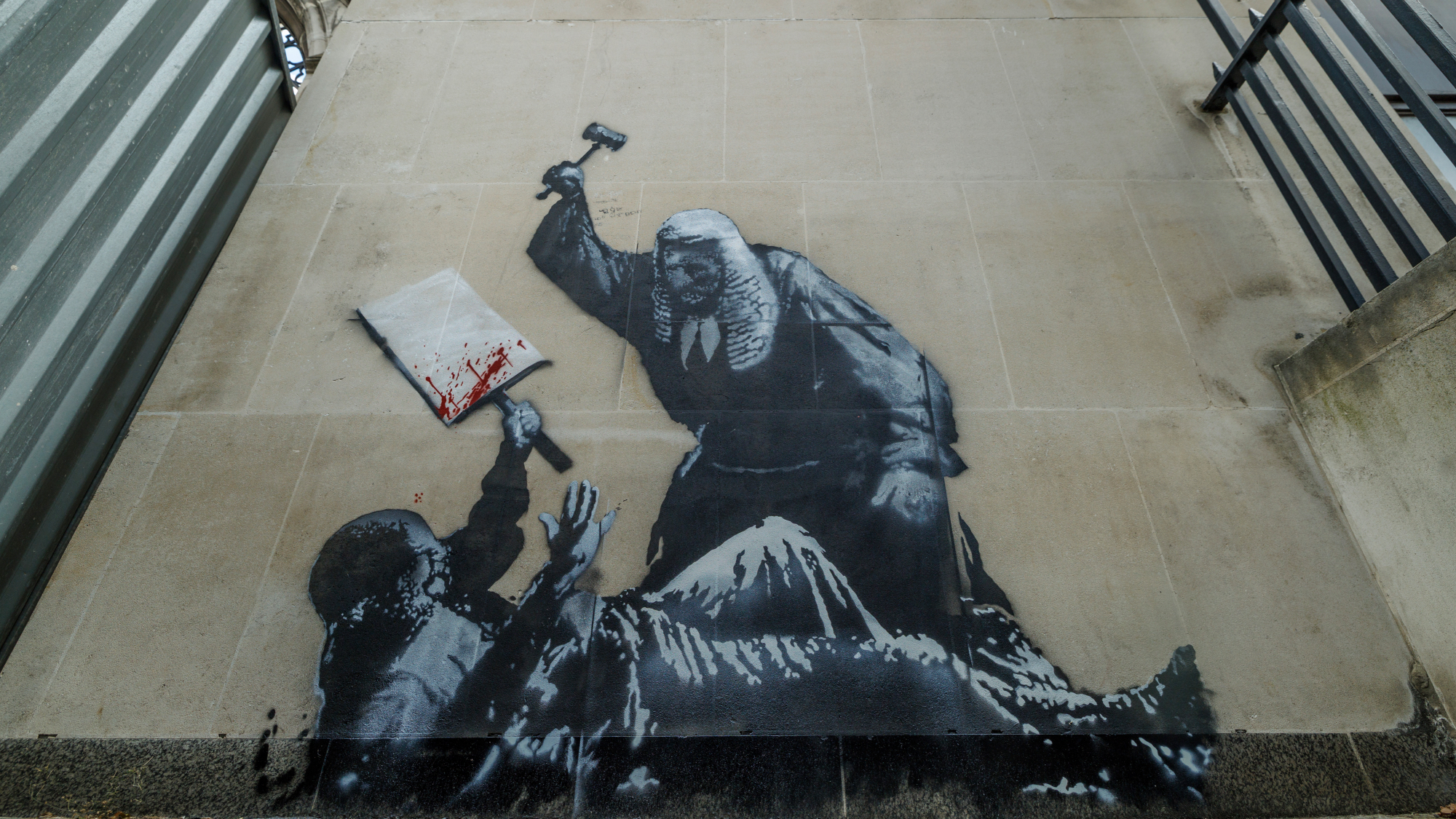'Blurred Lines' and 5 other popular songs sued for copyright infringement
Robin Thicke is in good company

Unfortunately for Robin Thicke, the world of copyright laws comes with its own set of blurred lines for determining when a song has infringed upon the originality of another. This week, the family of Marvin Gaye filed a suit claiming Thicke stole from Gaye's "Got to Give It Up" for his summer hit "Blurred Lines," as well as from "After the Dance" for Thicke's "Love After War."
The Gaye estate has brought a heap of evidence to the table, including an "expert report by musicologist Judith Finell detailing 'at least eight substantially similar compositional features'" between "Blurred Lines" and "Got to Give It Up," according to Eriq Gardner at The Hollywood Reporter.
But Thicke may take comfort knowing he's in good company when it comes to issues of music copyright. Here are five popular songs sued for copyright infringement.
The Week
Escape your echo chamber. Get the facts behind the news, plus analysis from multiple perspectives.

Sign up for The Week's Free Newsletters
From our morning news briefing to a weekly Good News Newsletter, get the best of The Week delivered directly to your inbox.
From our morning news briefing to a weekly Good News Newsletter, get the best of The Week delivered directly to your inbox.
"Ice, Ice Baby"
You would think whoever Vanilla Ice sampled from would be afraid to sue for fear of creating a permanent association with one of the most painfully embarrassing musicians of all time. But au contraire, Queen and David Bowie were more than happy to oblige, after realizing the main hook of "Ice, Ice, Baby" bore a striking resemblance to their 1981 "Under Pressure." Ultimately, Vanilla Ice (aka Robert Matthew Van Winkle) paid Queen and Bowie and gave Freddie Mercury and Bowie writers' credits for a song they never intended to produce.
"Shakermaker"
In a lawsuit involving three continents, British superband Oasis was sued by Australia's the New Seekers for stealing from a song that became famous via an American commercial. "I'd Like to Teach the World to Sing" became nationally known after appearing in a wildly successful 1971 ad for Coca-Cola. It had faded from most people's memories by the time "Shakermaker" came out in 1994, but the New Seekers called Oasis out. The two reportedly settled fairly amicably for $500,000, and Oasis even incorporated lines from "I'd Like to Teach the World to Sing" in a live performance of "Shakermaker."
A free daily email with the biggest news stories of the day – and the best features from TheWeek.com
"Ghostbusters"
Ray Parker Jr.'s "Ghostbusters," one of the catchiest songs in movie history, may stay stuck in your head for another reason: It bears an uncanny resemblance to the also popular "I Want a New Drug" by Huey Lewis. Parker won an Oscar nomination for his theme song, but that didn't do him any good in a lawsuit. It also didn't help that Lewis had evidence that he had been approached first by Ghostbusters producers to write a song for the film, but turned it down. In 1985, the two parties settled out of court with the understanding that neither would publicly discuss the suit, but of course it couldn't end that simply. After Lewis discussed the copyright issue in an episode of VH1's Behind the Music, Parker sued him for breaching their confidentiality agreement.
"Down Under"
Since it's probably the only successful pop song with a reference to Vegemite sandwiches, it's hard to imagine that Men At Work's "Down Under" stole from another source. Perhaps unsurprisingly, its inspiration came from another Australian classic, albeit one meant for children: "Kookaburra." (You may think you're unfamiliar with it, but play a few bars and it will come back from your nursery school days, even if you're not an Aussie.) Men At Work's frontman, Colin Hay, admitted that a member of the band included two bars of "Kookaburra" in a performance of "Down Under" that made it into the record. That was enough to award Larrikin Music, the owners of the copyright of "Kookaburra," five percent of all royalties from 2002 onward.
"My Sweet Lord"
In 1970, the quiet Beatle actually became the first to record a solo song that hit No. 1. Unfortunately for George Harrison, the success of the song quickly made evident its many similarities to The Chiffons' 1963 "He's So Fine." Bright Tunes Corp., which produced the song, sued Harrison for musical plagiarism in one of the "biggest trials in music history," wrote Bryan J. at Listverse. As soon as the trial started, Harrison's royalties were stalled, and he ultimately had to give back all the money earned from "My Sweet Lord" and even some of the sales from the album All Things Must Pass. However, Harrison ultimately bought the rights to "He's So Fine."
Emily Shire is chief researcher for The Week magazine. She has written about pop culture, religion, and women and gender issues at publications including Slate, The Forward, and Jewcy.


